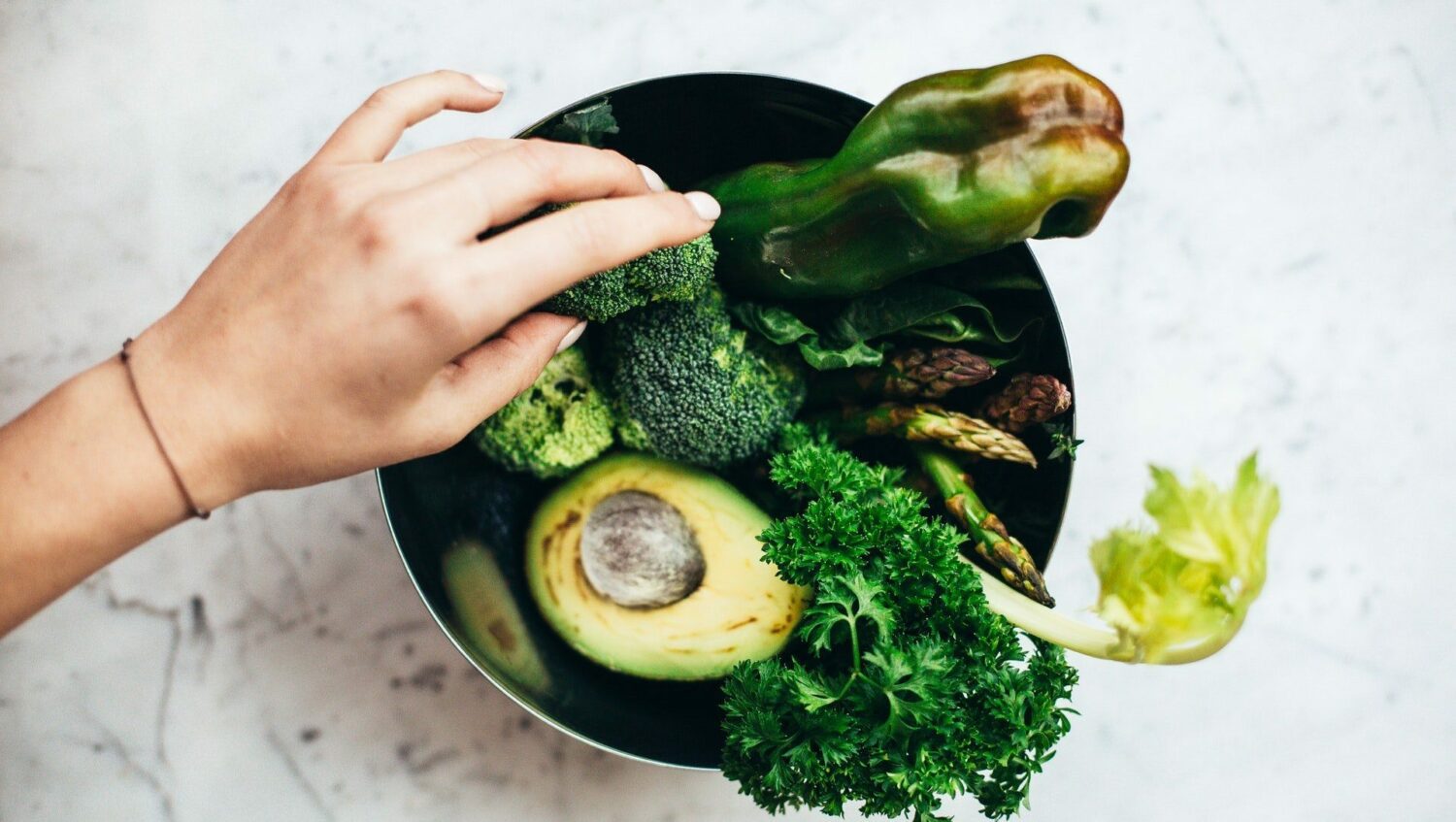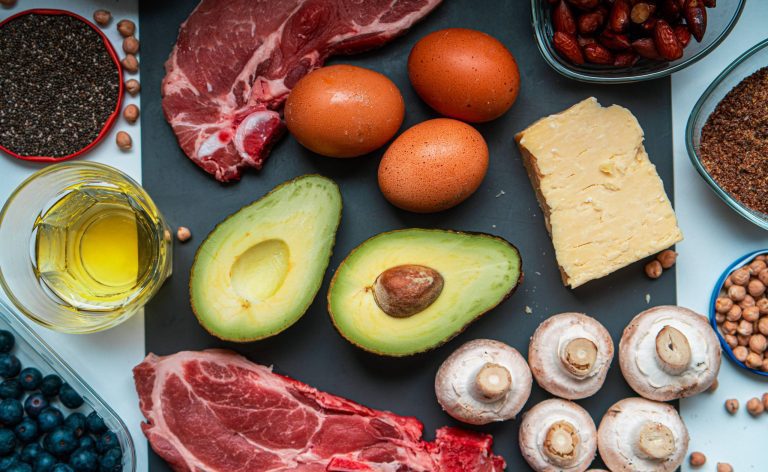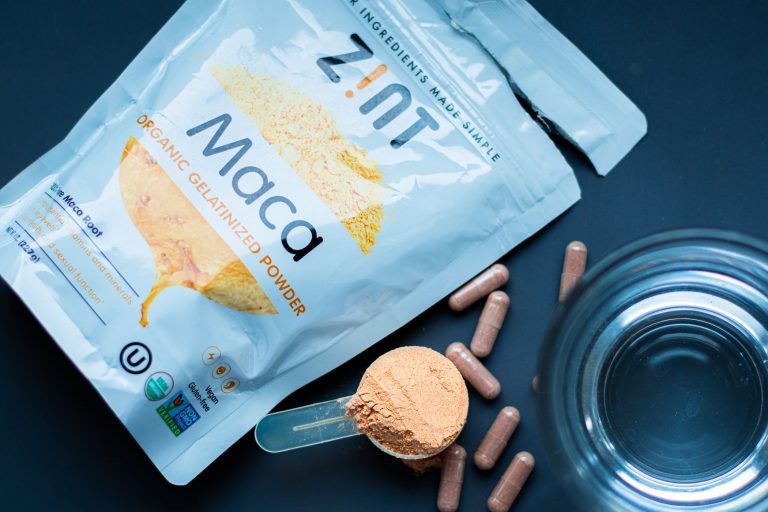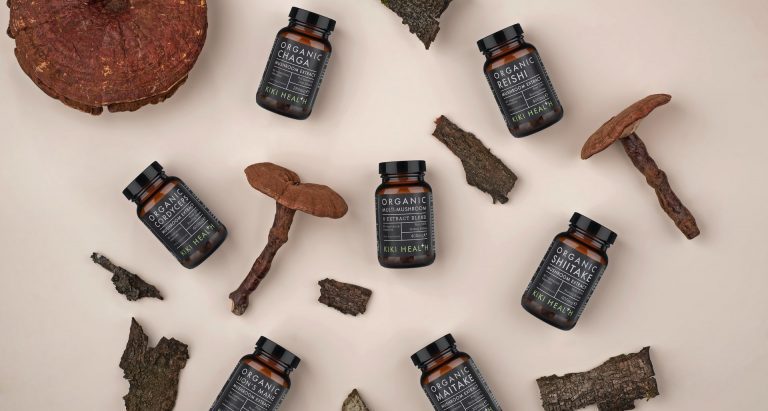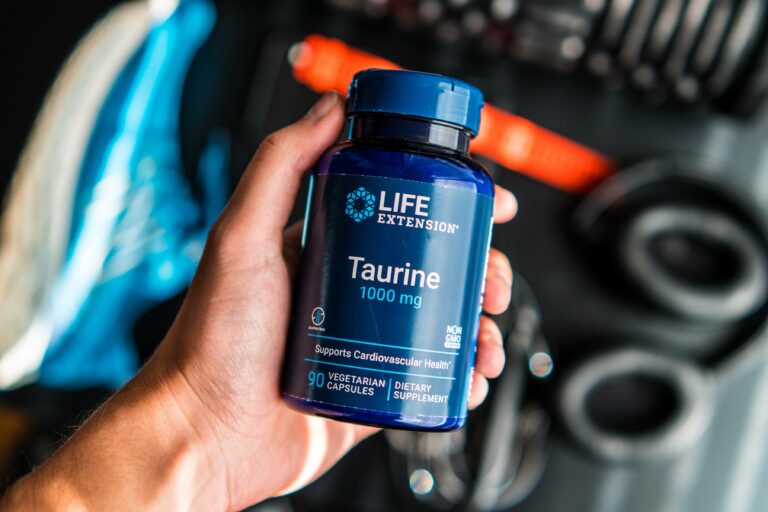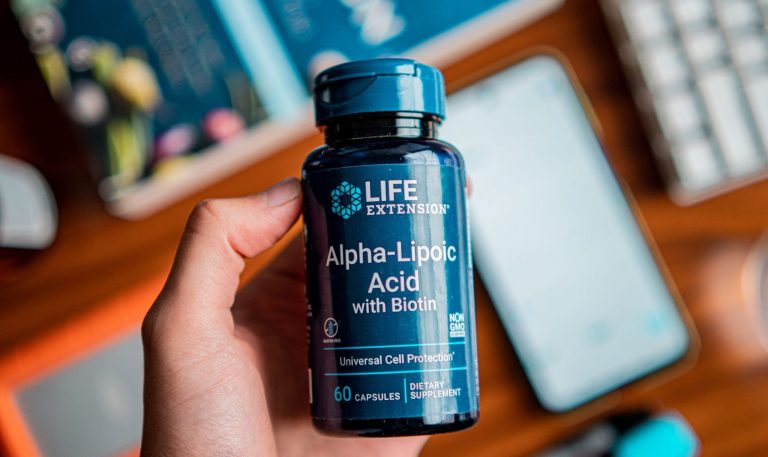Vegan Diet Guide – How to Go Vegan
Are you considering going vegan? You might want to read the whole article. This is a beginner’s vegan diet guide. Discover whether this is the right diet for you and what to expect if you choose to go 100% plant-based.
Before switching to a new diet you should learn the basics about the diet including types of vegan diets, best vegan foods and supplements, risks, safety & side effects, potential benefits, and common nutritional deficiencies amongst vegan eaters.
The Vegan Diet
One of the most popular, clean, and raw diets in the world is a vegan diet.
According to a statistic shown on Thevou, the vegan population grew from 0.4 % to 3.5 % in the last two years. In total, there are around 9.7 million people who practice a vegetarian diet, 0.5 of which eat purely vegan.
London, New York, Warsaw, and Berlin are by far the most sophisticated places to live as a vegan, offering high-quality vegan options. As this diet is slowly growing in popularity, many different vegan products on the market show out.
Vegans have lower BMI, cholesterol, and reduced risk of heart disease, which are the main benefits of going vegan.
But, is this a well-balanced diet, or are there some malnutrition forms of eating and potential risks and deficiencies when it comes to going 100% plant-based? Let’s find out.
What is a Vegan Diet?
The vegan diet is a dietary style of eating that includes plant-based products and excludes meat and dairy products. Veganism is associated with eating raw and organic foods, minimally or not processed at all, straight from nature itself.
Vegan eaters can eat multiple plants, legumes, vegetables, fruits, nuts, seeds, herbs, whole grains, and beans. Vegans exclude all meat and animal products such as chicken, pork, fish, beef, turkey, eggs, milk, cheese, yogurts, and so on.
When it comes to the Macronutrient profile, vegans do not restrict the ratio of carbohydrate vs protein vs fats, however, most vegan diets have a higher carbohydrate content that comes from grains, bread, starchy vegetables, and fruits.
Types of Vegan Diets
There are different subtypes of the Vegan Diet which mostly focuses on different ratios of eating veggies vs fruits, or limits processing and cooking. There are also more restrictive vegan diets such as fruitarianism and starch-based diet that either relies on complex carbohydrates and starch or mainly fruits and nuts.
- Raw Vegan Diet: this diet is 100% plant-based and relies on non-processed, raw plants, fruits, vegetables, nuts, and seeds that are cooked below 48° C (118° F). Cold-pressed oils, dehydrated vegetables, fresh and raw juices, uncooked grains, and legumes are a go-to for RAW eaters.
- Raw Till 4: A diet approach that follows raw, uncooked foods until 4 p.m. that allows minimally cooked plant-based dinner.
- The Thrive Diet: This diet is somewhere in between the raw and whole-food diet. It allows minimally cooked vegan goods at low temperatures.
- Whole-food vegan diet: This style makes up for the majority of vegan eaters, it is a vegan dietary pattern that allows veggies, fruits, beans, legumes, whole grains, nuts, and seeds.
- Fruitarianism – A vegan diet subset that relies heavily on fruits, and allows minimal greens, nuts, and seeds. The carrot juice diet is a part of the fruitarian, which became popular because it was one of the eating patterns that Steve Jobs practiced.
- Vegan Junk-food: This is the unhealthy version of vegan that allows eating vegan-approved foods that try to replicate animal products such as veggie burgers, meat & fries, vegan desserts, and lattes.
- Starch-Based Diet: Also called the starch solution, this type of vegan diet mainly focuses on high-fiber starch and complex carbohydrates such as corn, sweet potatoes, and squash as well as some other non-starchy vegetables like mushroom, spinach, Brussel sprouts, broccoli, plus 10% fruits.
Fun Fact
People who tried living on oranges, pumpkins, sweet potatoes, and carrots on a fruitarian diet have developed orange-colored skin, due to excessive amounts of beta-carotene that gets stored under the skin that makes it look orange.
If you are curious about which one is the best option for you, it depends on your goals. The vegan diet is in itself a really clean diet with foods rich in antioxidants that can reduce inflammation, so besides junk vegan food, every other type can be healthy.
When it comes to picking up one subtype, I would say that for beginners it is easier to stick to the whole-food vegan diet that allows every vegan food out there with minimal cooking.
Since the diet itself is very clean, I wouldn’t recommend any beginners to do even further forms of vegan restrictive diets such as fruitarian or raw-vegan, due to potential risks, deficiencies, and malnourishment.
Why is the vegan diet so popular?
- First, it represents a new way of looking at lifestyle for health-conscious people. Many vegan practitioners pride themselves on eating clean with the vegan diet, which also alters their lifestyle, indulging meditation, breathwork, yoga, pilates, and similar activities. It is sort of a whole-paradigm change, a new perspective on health and fitness.
- Second, it has become quite a controversial topic which stimulates people’s interest. This extended into three main questions, such as: is the vegan diet healthier than the regular diet? Is the vegan diet more ethical and is the vegan diet more environmentally sustainable?
- Third, how does the vegan diet impact our health? There are many different claims and studies behind it. In general, as a reset diet doctors suggest it actually can have positive effects on the cardiovascular system, body composition, and inflammation. From another standpoint, improper supplementation and meal-planning may lead to deficiencies such as: B-vitamins, iron, zinc, calcium, creatine, amino acids, and choline. These may negatively impact bone, brain, and muscle development.
Potential Benefits of the Vegan Diet?
Vegan diets may come with different potential health benefits such as:
– May reduce inflammation and oxidative stress
– May reduce the risk of cardiovascular diseases
– Promotes weight loss, lower caloric content per volume
– Improves cholesterol profile, reduced LDL & triglycerides
– May promote longevity by reducing chronic disease risk
– Clear skin, may act as a beauty tonic
– Increased energy, due to nutrient-rich profile
– Aids in digestion, due to high fiber content
– May reduce aggressiveness, anxiety, and hyperexcitation
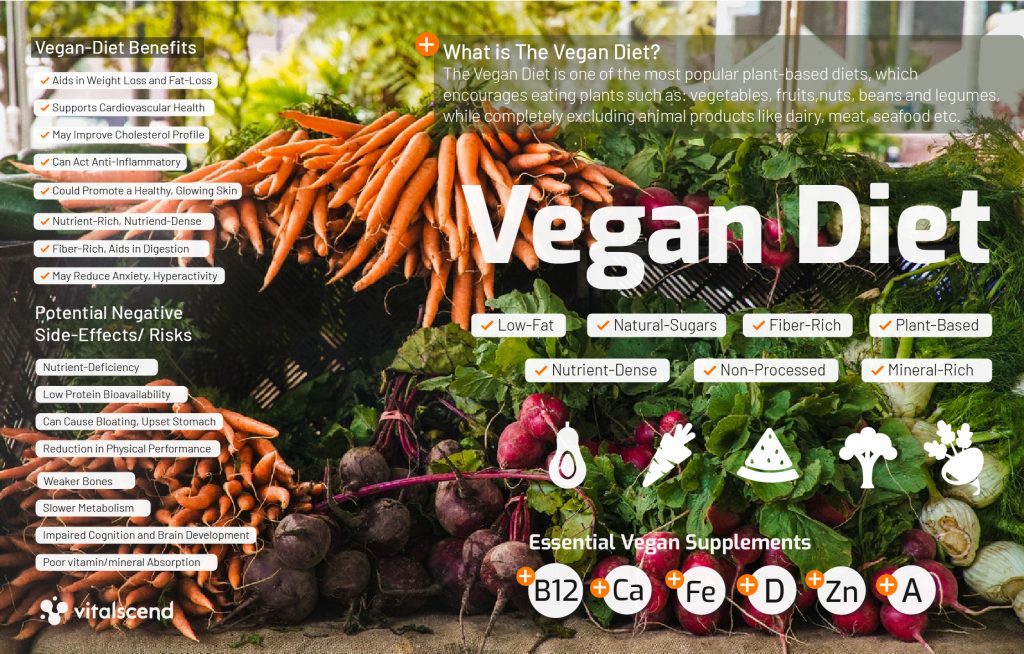
What Happens to Your Body When You Go Vegan?
Going vegan should be a longer, slower, and steadier process. Switching directly to a diet with opposite characteristics to the one that you already consume, will affect a lot of your body’s physiological responses.
A lot of things associated with energy metabolism, hormonal balance, protein synthesis, mood & well-being, and stress resilience will be influenced by rapid change.
So whether you choose to go vegan, keto, carnivore, or juice-fasting, you must know that these diets are going to produce significant changes in your body that will need the adaptation phase.
Even though going vegan has been a positive experience for many people, there are still a couple of things you want to expect before starting.
Reduced Taste
Bloating
Muscle Fatigue
Frequent Stool
Increased Energy
Sleep Patterns
Mood Boost
Skin Health
Swapping your meat and eggs for vegetables and plants will reduce your zinc levels. Zinc is important in regulating taste and smell and its insufficiency will reduce the perception of taste you have when eating.
Increasing the uptake of fiber-rich vegetables and starch, also having nuts and seeds as another alternative will cause some bloating when you start out. But this is not a bad thing, it is just an adaptation that can actually enhance digestion in the long-run.
Due to the fast transition to foods that are low in testosterone supporting properties and anabolic effects such as zinc-rich, protein-rich, and vitamin-D rich foods, usually in strength athletes going vegan may reduce performance, especially in the adaptation phase.
Because of the high-fiber starch, many vegans have increased bowel movements. It is common for vegans to have more gasses than usual and make trips to the bathroom more frequently. Soluble fiber is slowing down bowel movement by creating a gel-like substance while insoluble fiber is accelerating bowel movement, bulking the stool and making it pass quicker.
Vegan foods are usually high in carbs and lower in protein and fats, which makes them a great energy fuel since carbs are our primary energy source. However, many people say they run low on energy on a vegan diet, but this is not because of the plant-based approach, but rather because of a calorie deficiency. Meat and dairy products contain a lot more calories by weight & volume than plants, so eating more on a vegan diet is a good option.
Circadian rhythms can be dysregulated due to b12 deficiency, most common in vegans. This can further disrupt sleep. But vegan diets can also improve sleep if done correctly. Higher carbohydrate levels can improve mood and balance cortisol levels, which may further improve sleep.
Many people who try out the vegan diet for the first time notice mood improvements, better skin and more calm and alert mental state. Lower aggressiveness was also reported, and potentially lower competitiveness probably due to lower testosterone levels. Plus, vegans eat lots of beans, peas, nuts, and cocoa which are tryptophan-rich foods that may boost your mood.
Vegan diet includes a lot of antioxidant-rich foods that fight against oxidative stress and reduce inflammation. This slows down the aging process and makes your skin look better, glow, and reduces acne which originate mainly from inflammation that comes from processed meat and sugars.
How to Go Vegan?
Some of these side effects that come from drastic changes in dietary patterns can be reversed and improved, so going vegan can be made easier, and healthier, so it doesn’t take a toll on your body.
How To Ease Into The Adaptive State When Going Vegan?
Some supplements, dietary patterns, transition types, specific foods, and healthy habits can help you make the transition easier.
1. Slow change
Slowly transitioning into another diet is the key. You don’t want to just throw away every animal product and end up with nothing. You don’t want to go without preparing for it. You must know how to cook and meal prep delicious meals so that you don’t end up with processed vegan junk foods because that will be more detrimental to your health.
2. Digestive Enzymes
When going for a raw vegan diet, you would want to consider supplementing with digestive enzymes that can ease your bloating and improve digestion of many macro and micronutrients to ensure you are not malnourished. Enzymes can improve the breakdown of fats and proteins (lipases and proteases) while also improving immunity and gluten breakdown.
3. Essential Minerals
Without meat and dairy products, a lot of vegans are deficient in important minerals such as zinc, iron, and calcium. These minerals play a major role in protein synthesis, bone metabolism, and oxygen transport.
4. Vitamin B12
Many Vegans run at a high risk to be deficient in vitamin B12, and the best way to increase it is with supplementation since no plant-based foods contain significant amounts of B12. B12 is important for the optimal functioning of the brain and the nervous system, plus it plays a major role in energy production.
5. Tryptophan-rich foods
If your sleep is disturbed, you have mood swings, or sugar cravings a great option are foods rich in tryptophan. L-tryptophan is an amino acid that functions to produce serotonin, the happiness hormone which can regulate sleep, mood, and energy. Include foods such as bananas, pumpkin seeds, soybeans, oats, beans & lentils.
6. Education
Learning about the pros and cons of one diet is crucial before attempting it. Having a general understanding of how this diet works needs further investigation, one article is not enough. You should look up the scientific evidence, and speak to your doctor or nutritionist to avoid potential risks and side effects.
Vegan Diet Benefits
Eating a vegan diet certainly has various positive effect on the body since there is:
- minimal food processing
- fiber-rich foods
- higher intake of raw and organic foods
- nutrient-dense and low-calorie foods
- lots of natural products
- vitamins, minerals & antioxidant-rich
The most popular use of the vegan diet has been focused on longevity and reducing the risk of cardiovascular diseases. The vegan diet also has many beneficial properties for skin care, energy levels, inflammation, and improvement in digestion.
In 40 different studies, involving 12 619 vegans and 179 630 omnivores, through different examinations and questionnaires in 28 studies, overall vegans: (1)
- consumed fewer calories
- lower levels of LDL
- lower levels of triglycerides
- lower levels of fasting blood glucose
- thinner weight circumference
- lower blood pressure, both systolic and diastolic. (1)
Besides the cons of this diet, which we will talk about in the next section, many studies have seen positive effects on health due to practicing vegan dietary patterns. Vegans are naturally slimmer, have lower cholesterol levels & blood pressure, as well a reduced risk of heart diseases. (2)
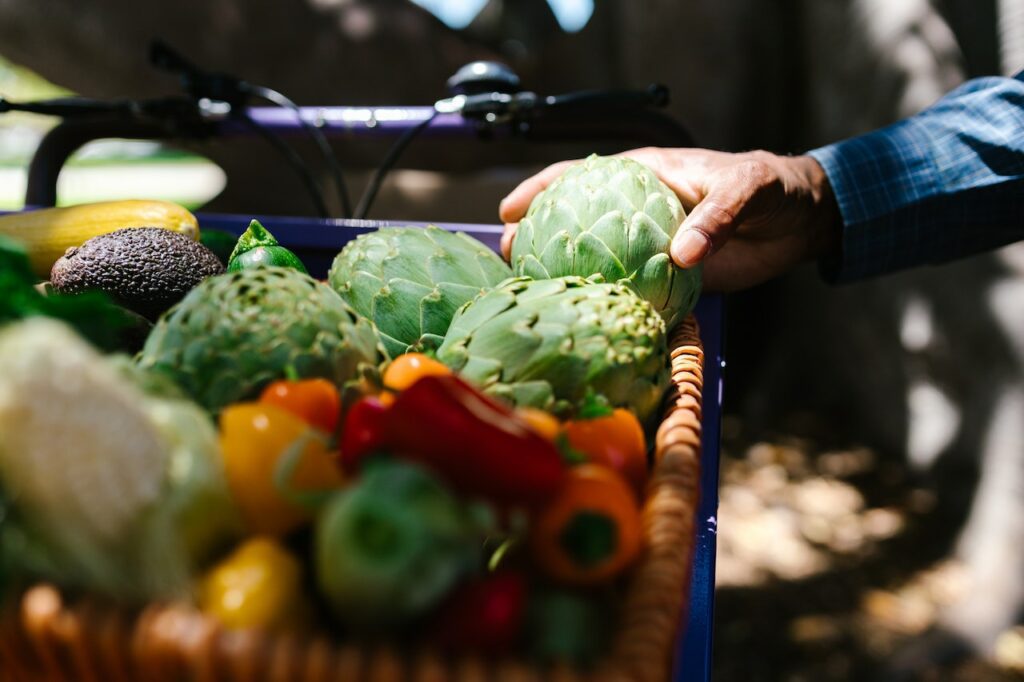
Nutrient Deficiencies in Vegan Diet
It is important to note that a Vegan diet is definitely not for everyone. While anyone might benefit from the Vegan diet in the short term, with a sub-optimal diet we can run into nutritional deficiencies. No wonder swapping red processed meat and fried foods for fresh organic fruits and vegetables can improve our health. However, this doesn’t mean that a Vegan diet is complete, well-balanced, and suitable in the long run for everyone.
A vegan diet is definitely a specific diet that will not suit everyone, in the long term. There are potential drawbacks when it comes to a vegan diet and its long-term effects. Most of these problems come as a side effect of malnutrition and lack of certain vitamins, minerals, or nutrients that are present in animal products.
Here is the list of the most common nutrient deficiencies that come along with going 100% plant-based.
Vitamin B12
Vitamin B12 is an essential vitamin required for healthy brain and nervous system function, which is also involved in red blood cell formation, oxygen transport, cell division, and DNA regulation. B12 deficiency can lead to serious and irreversible neurological damage. The most common symptoms of B12 deficiency include weakness, numbness, tiredness, fatigue, and a smooth tongue.
Pro Tip
The liver is efficient at storing vitamin B12 for longer amounts of time, so checking your B12 level as a vegan might not always give you a realistic image of what happens until you run at a real deficiency.
Zinc
Zinc, as essential mineral zinc plays a major role in immunity, cell division, and carbohydrate metabolism. Long-term deficiency of zinc doesn’t just lower your libido and testosterone but it can also cause, a loss of appetite, hair, stomach problems, inability to regenerate, apathy, and mood problems.
Fun Fact
Even though many vegan foods contain zinc, the bioavailability of it is lower which leaves vegans with lower zinc levels, compared to omnivores.
Calcium
Calcium is also an essential mineral that is important for muscle contraction, bone-building, nerve transmission, heart function, and fluid balance. Fatigue, muscle weakness, low bone density, nail & skin problems, or depression are some calcium deficiency symptoms. This can be detrimental for musculoskeletal development.
Biohack
Many plant-based foods contain substances such as oxalates and phytate which inhibit the absorption of calcium and zinc, so even if you get a supplement, bioavailability is the main problem. Foods with the highest fractional absorption of calcium are bok choy, broccoli, and kale.
Amino-Acids
Amino-Acids: Lower levels of amino acids which are important for muscle growth, regeneration, optimal function of the brain & nervous system, synthesis of neurotransmitters, and hormones, can come as a side-effect of the Vegan Diet. If you are deficient in those essential amino acids, some side effects might include muscular weakness, weight loss, skin depigmentation, and immune system dysfunction.
The problem with vegan diets and protein is not that there isn’t enough protein. Nuts, seeds, and leafy greens are rich in protein. The problem is that plant-based sources usually have lower bioavailability, lower lysine content, and slightly poorer digestibility. (27) However, another study confirmed that adding legumes, nuts, and seeds to a vegan diet can improve the protein intake up to adequate levels. (28)
Choline
Choline is one of the most important nutrients when it comes to the nervous system, brain function, mood, memory, nerve transmission, and muscle control. Vegan brains can potentially be put at a higher risk of neurological disorders due to choline and B12 deficiency. Potential side effects of choline deficiency are liver, heart, and brain diseases, and atherosclerosis.
Fun Fact
There are many choline reach vegan-friendly options you can eat such as tofu, mushroom, peanuts, broccoli, and quinoa. There are also great brain-enhancing supplements suitable for vegans.
Iron
Iron, is also an essential mineral that plays a role in oxygen transport, immune system function, and energy metabolism. Iron deficiency can put vegans at a higher risk of anemia. (29) In this study, vegetarians had a higher prevalence of depleted iron stores. (30)
Fun Fact
Plants containing iron have the non-heme version of it, which takes longer to be absorbed than the heme iron found in meat.
Creatine
Creatine. When it comes to building strength, muscular endurance & stamina, one of the most popular supplements on the market is creatine. It helps with energy production, especially in speed-strength or anaerobic sports, because it can give phosphate to ADP to regenerate it to ATP for energy, quickly without the presence of oxygen (anaerobic). Creatine is also a potential agent in improving brain function, used as a nootropic too.
Biohack
Due to lower carnosine and creatine content, the addition of beta-alanine and creatine can help vegan athletes to perform better.
ALA, EPA, and DHA
ALA, EPA, and DHA. Last but not least, vegans may lack Omega 3 fatty acids which play important role in regulating inflammation and mood, as well as reducing the risk and symptoms of some diseases. The problem in vegans is that the conversion rate is low, for ALA is around 5-10%, and pretty low for EPA and DHA, at around 2-5%. (31)
Pro Tip
Include omega-3-rich vegan foods such as chia seeds, seaweed, hemp seeds (oil), flaxseed and walnuts (oil), kidney beans, soybean oil, and algae.
Plants vs. Meat
If you are thinking about going on a vegan diet, you should know the differences that animal products offer in comparison to plants.
Both meat-eaters and plant-based eaters can have certain benefits, but one diet is more suitable for some people than the other, depending on their goals, genetics, and other factors such as age, sex, activity level, etc.
Here are a couple of differences to understand what is meat-dominant and a plant-dominant diet rich in and what benefits it may provide, so you can make your choice easier.
Plants
Meat
Plant-based nutrition offers quite a few health benefits, most of which are related to reducing inflammation and improving cholesterol profile.
A vegan diet is:
- Nutrient-dense
- Lower in calories
- Rich in fiber
- Contains many vitamins & minerals
- Contains many antioxidants & phytochemicals
- Minimally processed foods
- Less fat, less protein, more carbohydrates
This diet can potentially reverse the risk of cardiovascular coronary diseases, due to improving cholesterol profile. It has the potential to reduce LDL and triglycerides, lowering blood pressure and blood sugar levels which makes it a good alternative for those interested in cutting the risk of heart diseases, weight loss, improved digestion (fiber-rich foods), and reducing inflammation.
Meat eaters have also greatly benefited from eating animal meat and dairy since they are the richest source of all the essential nutrients for musculoskeletal and brain development.
Meat-dominant diet is:
- Calorie rich
- Nutrient-rich
- Lower in fiber
- Contains many essential amino-acids
- Loaded with B vitamins
- Rich in important minerals (calcium, zinc, iron)
- Improves fat-soluble vitamin absorption
- Rich in creatine, carnosine & carnitine
By meat-based diet, it is not meant carnivore, pure meat-eating but rather omnivore diet which includes meat. In my opinion, living solely on meat can be detrimental for the majority of the population.
Many keto, paleo, and carnivore dietitians put a lot of emphasis on how we evolved from our primal ancestors who didn’t get enough carbs and were fed on meat but the evolution has changed in the past years with more people feeding on carbohydrates, our digestive system has become more efficient at using glucose.
So in omnivore diets, one who eats animal products can benefit in terms of muscular development, bone health, strength & density, optimal function of the brain & nervous system, and improved athletic performance.
Which diet should I choose now, Plant-based or Meat-dominant?
Whatever you choose make sure you do three things.
- First, read a lot of research, second, consult with your doctor and nutritionist, third do not go for extreme diets and fast transitions.
- I think that for the majority of the population, whichever diet you choose, it is good to take a break from time to time and switch it up.
Since both diets provide some benefits and may have negative side effects, it can be beneficial if you would not restrict yourself to only one style of eating for the long term. However, if you have a strong reason for picking one diet, then make sure you do these three things to optimize your nutrition, structure a supplementation stack, and improve your health in the safest way possible.
Research Limitations
*Studies have some limitations, important to evaluate the validity of their results. Here’s a highlight of some and NOT ALL studies (and limitation), shown in this article, for context.
- Comparing omnivores with vegans isn’t an effective way to measure health benefits (or superiority) of the vegan diet, as health-consciousness may play a big part.
- Associations influenced by external factors *genetics, smoking, activity, alcohol etc.
- Unreliability in assessing food quality, and use of food questionnaires.
- Studies with small to moderate sample sizes, hard to generalize.
- Not all studies emphasize importance of protein-bioavailability.
- Fast transitions might cause over exaggerated effects.
- Aged data including articles from 2001, 2002, 2007, 2008 etc.
- For specific recommendations or guidelines, we need more research data.
- Meta-analysis which are limited by heterogeneity.
- Some studies weren’t adjusted for factors like BMI or activity level.
- Although vegetarian diets are considered as likely protective, we need larger studies for stronger evidence on prevention or treatment of various conditions.
- Early follow-up analysis which might be biased, hard to uncover real long-term association.
Veganism: Pros and Cons
As we already mentioned every diet has its pros and cons and is not suitable for everyone.
The vegan diet itself is one of the most popular diets in the world with many claims for promoting health and longevity, however, this comes at a certain cost.
Vegan Diet PROS
Vegan Diet CONS
- Reduced risk of diseases: vegans are at a lower risk for developing cardiovascular, and coronary heart diseases
- Promotes weight loss: lower calorie count
- Promotes satiety: Fiber-rich foods make vegans eat fewer calories overall, which is associated with longevity
- Aids digestion: insoluble and soluble fiber-rich foods in vegans can improve stool frequency
- More environmentally sustainable: to produce plants requires a lot less water
- Improved cholesterol profile: Reduced LDL & triglycerides
- Reduced inflammation: Vegans have lower CRP (C-reactive protein)
- Reduced arthritic pain: due to reduced inflammation and weight loss
- Calm, Relaxed, Alert: vegans may be less aggressive and authoritative, which may be due to lower testosterone
- Stress resilience & decreased anxiety: lower stress & anxiety reported in vegans, maybe due to the ability of carbohydrate-rich foods to modulate cortisol, and cutting off meat lowers blood pressure.
- Promoted Longevity: by cutting the risk of chronic diseases and reducing inflammation vegan diet has the potential to increase lifespan
- Clear Skin: many report clearer skin after going on a vegan diet, maybe due to lowering peripheral inflammation which causes acne
- Potential Cancer Protection: raw & organic foods are loaded with tones of antioxidants that may be beneficial in reducing the risk of certain cancers (colorectal, breast, prostate)
- Increased energy: long-term sustainable energy may be higher in vegans due to nutrient-dense and carbohydrate-rich foods, however, the data on this subject is not clear.
- Nutrient deficiency: vegans may lack B12, creatine, zinc, iron, calcium, omega 3’s, choline, taurine, and other amino acids (leucine, lysine)
- Malnutrition: vegans run lower on calories which from one perspective can induce longevity, from another it can be nutrient deficient which can’t support healthy growth & regeneration
- Poor absorption: many vitamins, minerals, and nutrients in the vegan diet including amino acids are not as bioavailable and digestible because raw vegan foods contain substances like tannins, lectins, and oxalates which decrease their absorption
- Muscle loss: without proper supplementation vegans have a lower quantity and quality of protein because plant sources do not contain all the essential amino acids such as meat, plus the bioavailability is not as high as with animal products
- Weaker bones: lack of calcium and vitamin D interferes with healthy bone growth and regeneration, which may also increase the risk of osteoporosis
- Physical performance may suffer: many important nutrients such as creatine, amino acids, B vitamins, and Leucine that are crucial for a developing athlete are lacking in vegan diets
- Reduced brain performance: Choline and B12 deficiency are not good for the brain and without proper supplementation brain shrinkage, impaired cognition, and irreversible damage may occur
- Slower metabolism: if vegans run low on protein, the thermogenic effect of food will be lower which can decrease energy expenditure in the body
- Gastrointestinal problems: fast transition to a vegan diet may cause bloating, constipation and diarrhea due to its fiber-rich content and the effect on the gut microbiome
conclusion
A vegan diet Is a dietary approach to eating plant-based foods like fruits, nuts, seeds, veggies, and legumes excluding meat or other animal products. A vegan diet may reduce the risk of cardiovascular diseases, and inflammation, and improve cholesterol profile. The most common deficiencies in vegans are low levels of B12, iron, calcium, zinc, EPA & DHA, amino acids, and vitamin D. Making sure to optimize your nutrition by getting as many different plant-based foods is key, as well as consulting with a nutritionist to structure a supplementation plan so you avoid the common negative side effects and deficiencies.
Frequently Asked Questions
Is the vegan diet healthy?
The data on vegan diet’s impact on health is somewhat controversial. There are many pros and cons of the vegan diet. How healthy the diet is depends on what we eat, but also many genetic factors play a role.
With proper nutrient optimization and supplementation, vegan diet can be very practical and sustainable for some people. For the general population, it is great to consult a doctor before trying this, or any other new diet.
The general sentiment is that cardiovascular health can be improved along with reduced inflammation, following a vegan diet. This is tightly related to longevity, and the high-fiber profile can improve gut health.
However, health is pretty individual and everyone responds differently. For many people who aren’t optimizing the vegan diet, it can lead to serious malnourishment and lack of B-vitamins, iron, zinc, calcium, creatine, amino-acids and choline. These may negatively impact bone, brain and muscle development.
What are the negative side effects of a vegan diet?
Potential negative side-effects of following a 100% plant-based diet are: malnourishment, nutrient deficiency, muscle loss, weaker bones, poor absorption of vitamins/minerals, decrease in physical performance, slower metabolism, impaired cognition and brain development, and gastrointestinal problems.
Can I build muscle on a vegan diet?
The short answer is yes you can. As long as you exercise with weights, and eat at a light caloric surplus with good amounts of protein (1.3-1.7 grams per kg of bodyweight daily) you can build muscle. The problem is, the vegan diet by excluding all the animal products, makes it harder to consume highly bioavailable proteins, and complete proteins (with all amino-acids). The problem is, even if you get the needed amount of protein daily, the bioavailability from plant proteins is lower, than from animal sources. This can be of course optimized, by proper protein supplementation. So, in general, although it is less practical, it is completely possible to build muscle on a vegan diet.

